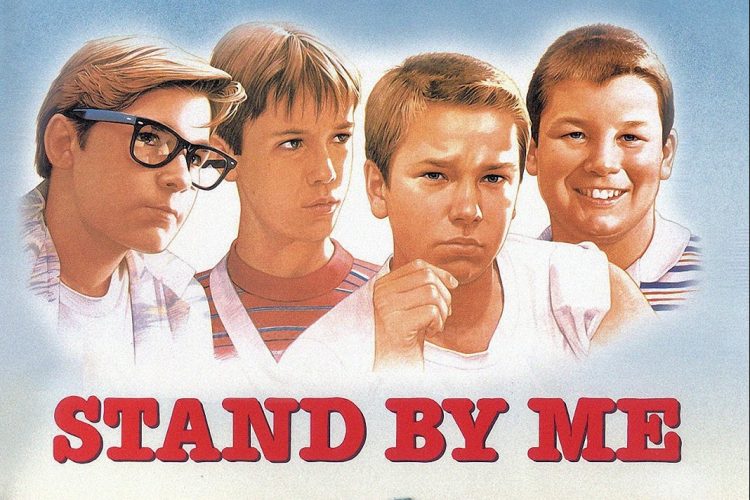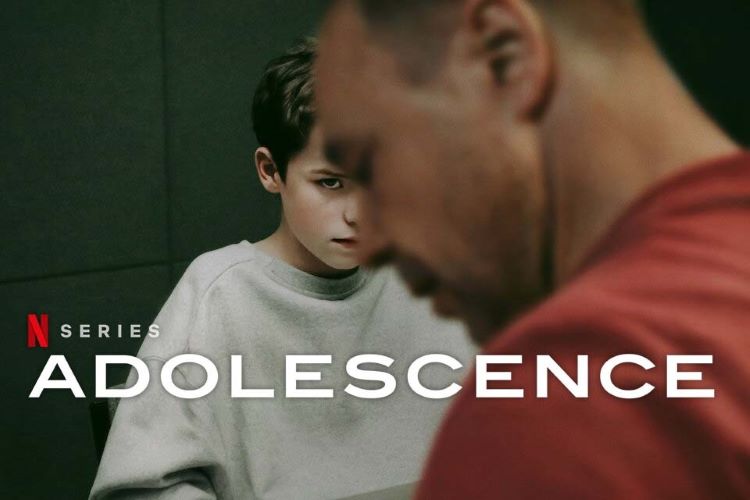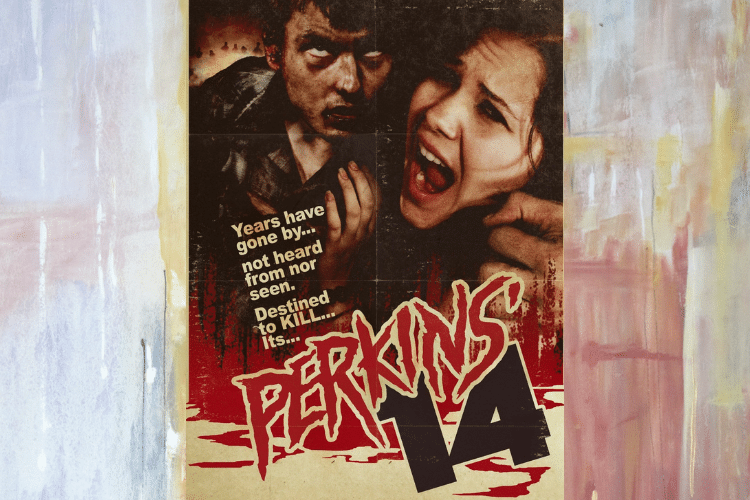“What am I supposed to do, think of everything? I brought the comb!”
Main Cast: Wil Wheaton, River Phoenix
Director: Rob Reiner
During the mid-80s, when it seemed Stephen King was taking over not only the bookstores but the movie theaters as well, a project came around that not only surprised most audiences, but also gave them pause when talking about “that horror writer.” STAND BY ME was adapted from King’s novella The Body, which appeared in his collection DIFFERENT SEASONS and, while the title and the impetus behind the plot evoke some horrific images, the heart of the story was an entirely different creature than audiences had come to expect from the master of horror.
Renamed STAND BY ME, the movie told the story of four young boys on the brink of their teenage years in the 1950s who tell their parents a little white lie about where they’re camping out that night and instead sneak off together to find the body of a missing boy who’s been killed by a speeding train. Chris Chambers (River Phoenix), Gordie Lachine (Wil Wheaton), Vern Tessio (Jerry O’Connell) and Teddy Duchamp (Corey Feldman) and the characters and a better, more fitting cast for these roles you couldn’t find if you had to.
The plot sounds like the perfect set-up for another of King’s gore-soaked flicks. What people hadn’t anticipated was that the story had a heart and a tenderness that even the most practiced sob-story writers couldn’t match. STAND BY ME focuses on these four boys and the trials of growing up in a way that doesn’t trivialize childhood or make it seem like rainbows and butterflies but tells the truth of it in a way that’s both brave and intelligent.
King has always been one for capturing the tone of childhood, especially the later years just as the characters are about to cross over into teenage territory. Anyone who’s been through that process with their friends knows what an important and memorable event this was, especially that last summer vacation before the beginning of junior high. And what STAND BY ME does is take those times that everyone is familiar with and project them onto the screen for everyone to see and reminisce over the “good old days.”
There’s not much plot detail to give away here, the movie is basically our four characters’ journey along the train tracks, and later through the woods. In this case, it’s not the journey that matters, not in the way you would think. It’s the moments in between, as their characters are revealed and they each find their way to themselves.
This isn’t a movie about childhood, it’s a movie about growing up. It’s a movie about friendship, and whether it’s Chris Chambers crying over not even being given a chance to be a good person, being condemned from the moment of his birth because of his last name, or it’s Gordie LaChance missing his dead brother and knowing his father wishes he had died in Denny’s place, they’re not necessarily details we relate to, but the feelings behind them are universal, especially for people of that age. And that’s why this movie works so well, because it may not be the PEOPLE we connect with, but we definitely understand the emotions they’re going through.
The screenplay was written by Raynold Gideon and Bruce A. Evans (the duo also wrote STARMAN, CUTTHROAT ISLAND and MR. BROOKS, with Evans directing the latter) and directed by Rob Reiner.
Reiner is one of the few directors in the history of King’s film career who really understands the source material and brings the heart of the work to the screen in a way that connects with the intended audience. He was also the first director to let people who had only seen the movies but had never read the books know that Stephen King isn’t “just” a horror writer, but that he’s a talented writer no matter the genre or subject matter. This is, I think, a very important moment because I don’t believe any of us get into writing because we want to write science fiction or horror or spy novels, or whatever. We do it because we want to write. And if the material we focus on happens to be horror or romance or mysteries, that’s just where the chips fall. Reiner understands that, too, and he finally gave King’s work a chance to shine for the great writing it is.
STAND BY ME went on to make nearly 8 times its budget back in U.S. theaters alone, has been considered a classic nearly since the moment it was released, and has been a gold star performance on the resume of all four of the main cast members. It opened new doors in the world of Stephen King movies as well, paving the way for later blockbusters like THE GREEN MILE and THE SHAWSHANK REDEMPTION, movies that allowed us to further explore the complexities of King’s characters rather just wonder when the next jump scare was going to come.
STAND BY ME has received tons of accolades and attention and, even now, so many years later, it’s still earning them with every viewing. I’ve seen it a dozen times and I still find myself laughing out loud, or feeling my chest tighten for the characters during particularly tense moments. STAND BY ME was a whole new direction in Stephen King movies in 1986, but as history has shown, it was the RIGHT direction.
King on Film
Word Processor of the Gods (1984)
The Shawshank Redemption (1994)
Children of the Corn III: Urban Harvest (1995)
Sometimes They Comes Back … Again (1996)
Children of the Corn IV: The Gathering (1996)
The Revelations of ‘Becka Paulson (1997)
Children of the Corn V: Fields of Terror (1998)

C. Dennis Moore is the author of over 60 published short stories and novellas in the speculative fiction genre. Most recent appearances are in the Dark Highlands 2, What Fears Become, Dead Bait 3 and Dark Highways anthologies. His novels are Revelations, and the Angel Hill stories, The Man in the Window, The Third Floor, and The Flip.







Leave a Reply